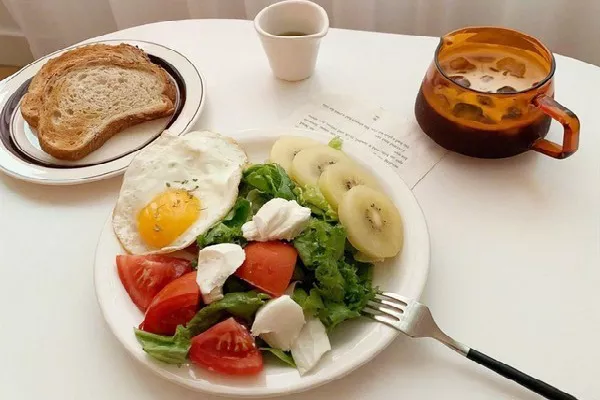When it comes to losing weight, one of the most important factors to consider is maintaining a calorie deficit. In order to lose weight, you need to consume fewer calories than you burn through exercise and daily activities. However, it’s important to ensure that you’re still getting all of the nutrients your body needs to function properly.
Here are some tips on what to eat on a calorie deficit:
-
Focus on nutrient-dense foods
When you’re on a calorie deficit, it’s important to make every calorie count. Focus on consuming nutrient-dense foods that are high in vitamins, minerals, and fiber. This will help ensure that your body is getting all of the nutrients it needs, while still allowing you to consume fewer calories.
Some examples of nutrient-dense foods include:
- Leafy greens like spinach, kale, and arugula
- Fruits like berries, apples, and oranges
- Vegetables like broccoli, carrots, and bell peppers
- Lean proteins like chicken, turkey, fish, and tofu
- Whole grains like brown rice, quinoa, and whole wheat bread
-
Be mindful of portion sizes
When you’re on a calorie deficit, it’s important to pay attention to portion sizes. Even if you’re eating healthy, nutrient-dense foods, consuming too much can still lead to weight gain.
One way to control portion sizes is to use a food scale or measuring cups to ensure that you’re eating the correct serving size. You can also use your hand to estimate portion sizes. For example, a serving of protein should be about the size of your palm, while a serving of vegetables should be about the size of your fist.
-
Prioritize protein
Protein is an important nutrient for weight loss because it helps you feel full and satisfied, while also supporting muscle growth and repair. Aim to include a source of protein with every meal and snack.
Some examples of high-protein foods include:
- Chicken, turkey, and other lean meats
- Fish and seafood
- Tofu and other soy products
- Beans and legumes
- Greek yogurt and cottage cheese
- Eggs
-
Incorporate healthy fats
While it’s important to consume fewer calories on a calorie deficit, it’s still important to include healthy fats in your diet. Healthy fats can help you feel full and satisfied, while also supporting brain function and hormone production.
Some examples of healthy fats include:
- Avocado
- Nuts and seeds
- Olive oil
- Coconut oil
- Fatty fish like salmon and tuna
-
Limit processed and high-sugar foods
When you’re on a calorie deficit, it’s important to limit your intake of processed and high-sugar foods. These types of foods are often high in calories and low in nutrients, which can make it harder to maintain a calorie deficit and lose weight.
Some examples of processed and high-sugar foods to limit include:
- Soda and other sugary drinks
- Candy and sweets
- Chips and other salty snacks
- White bread and other refined grains
- Fast food and other high-calorie restaurant meals
In conclusion, eating on a calorie deficit requires a balance of healthy, nutrient-dense foods that support weight loss while still providing all of the nutrients your body needs to function properly. By focusing on portion control, prioritizing protein, incorporating healthy fats, and limiting processed and high-sugar foods, you can achieve your weight loss goals while still maintaining a healthy, balanced diet. Remember to listen to your body, stay hydrated, and consult with a healthcare provider before starting any new diet or exercise routine.
Recommended reading:


